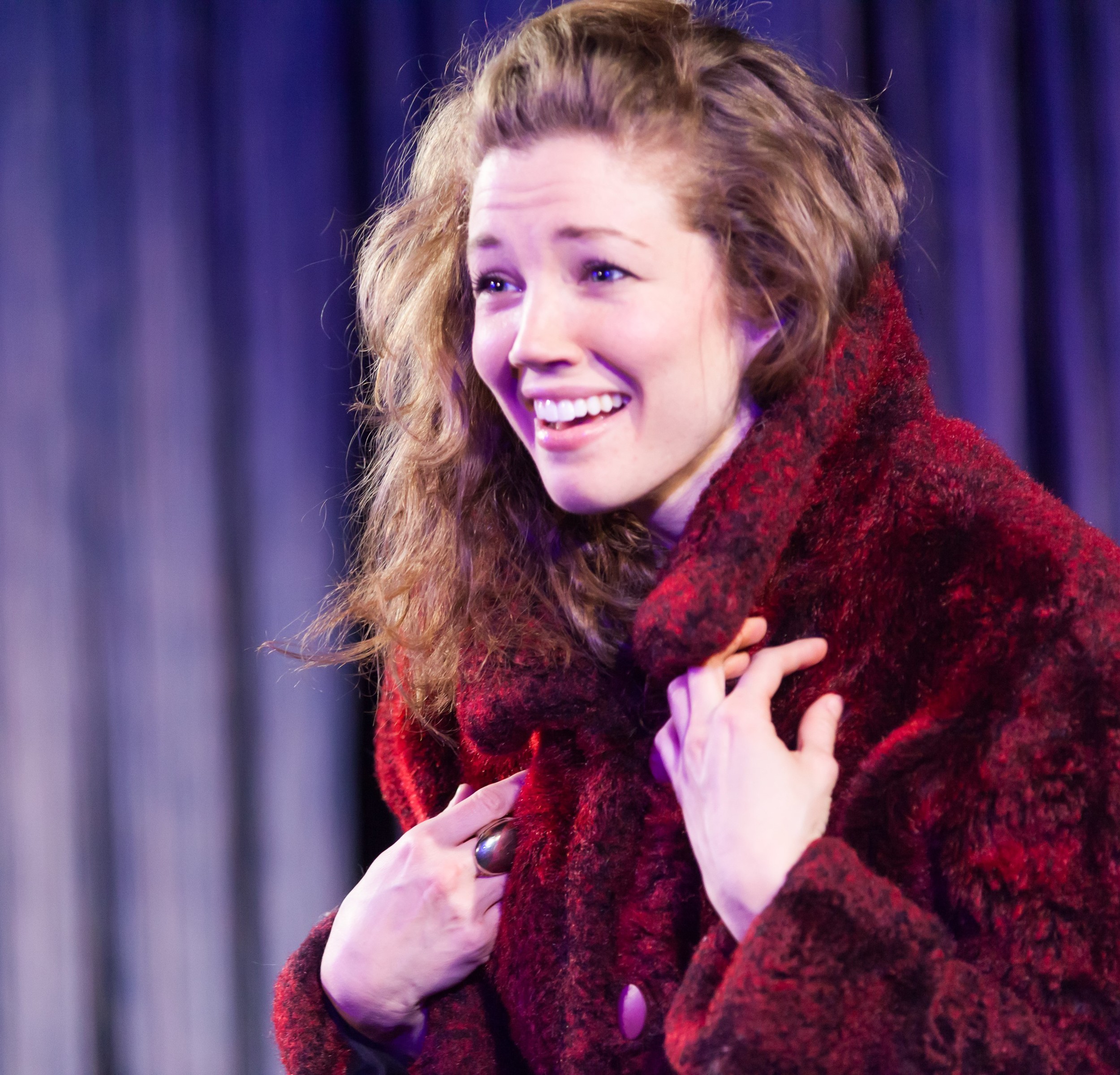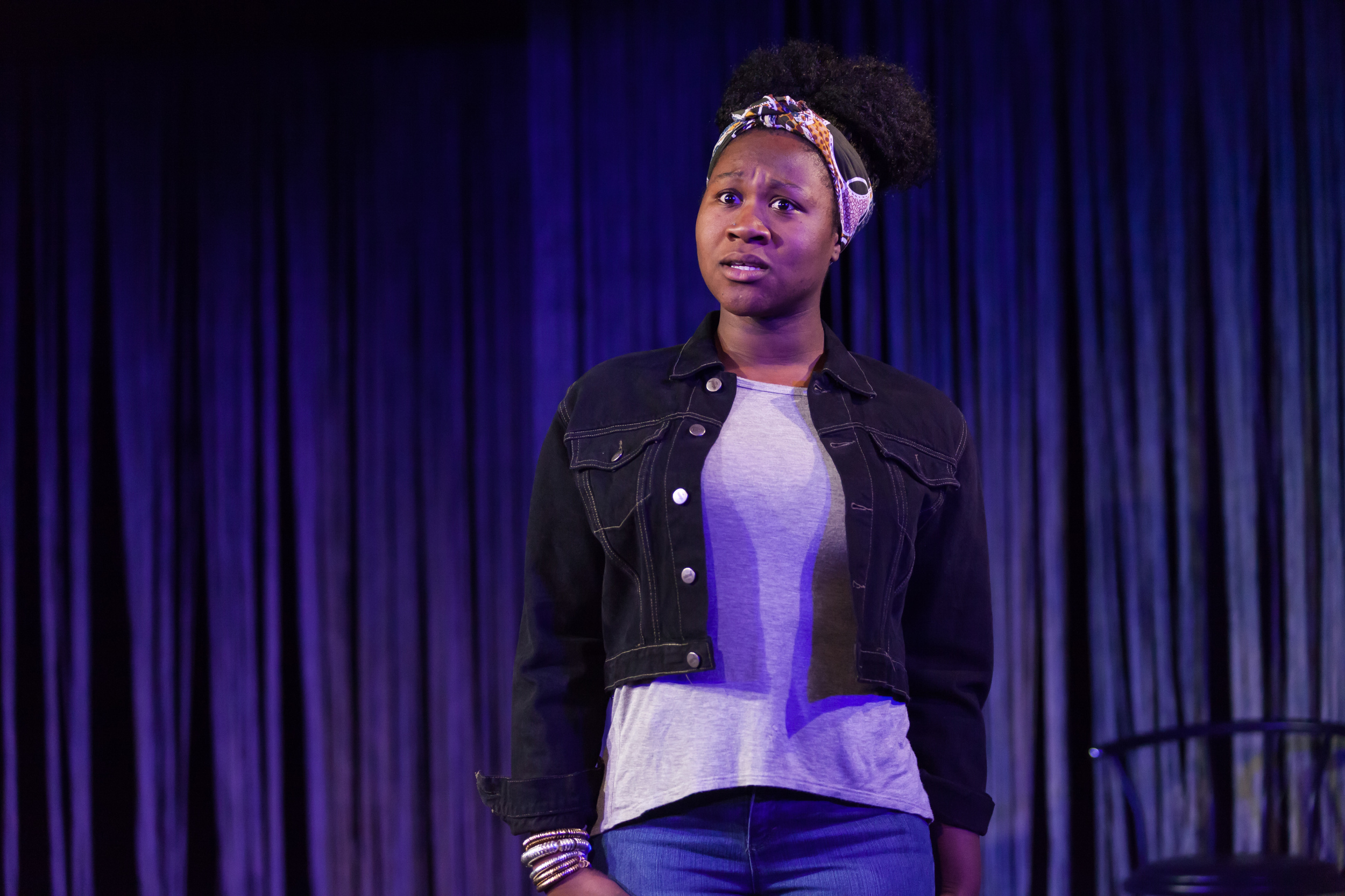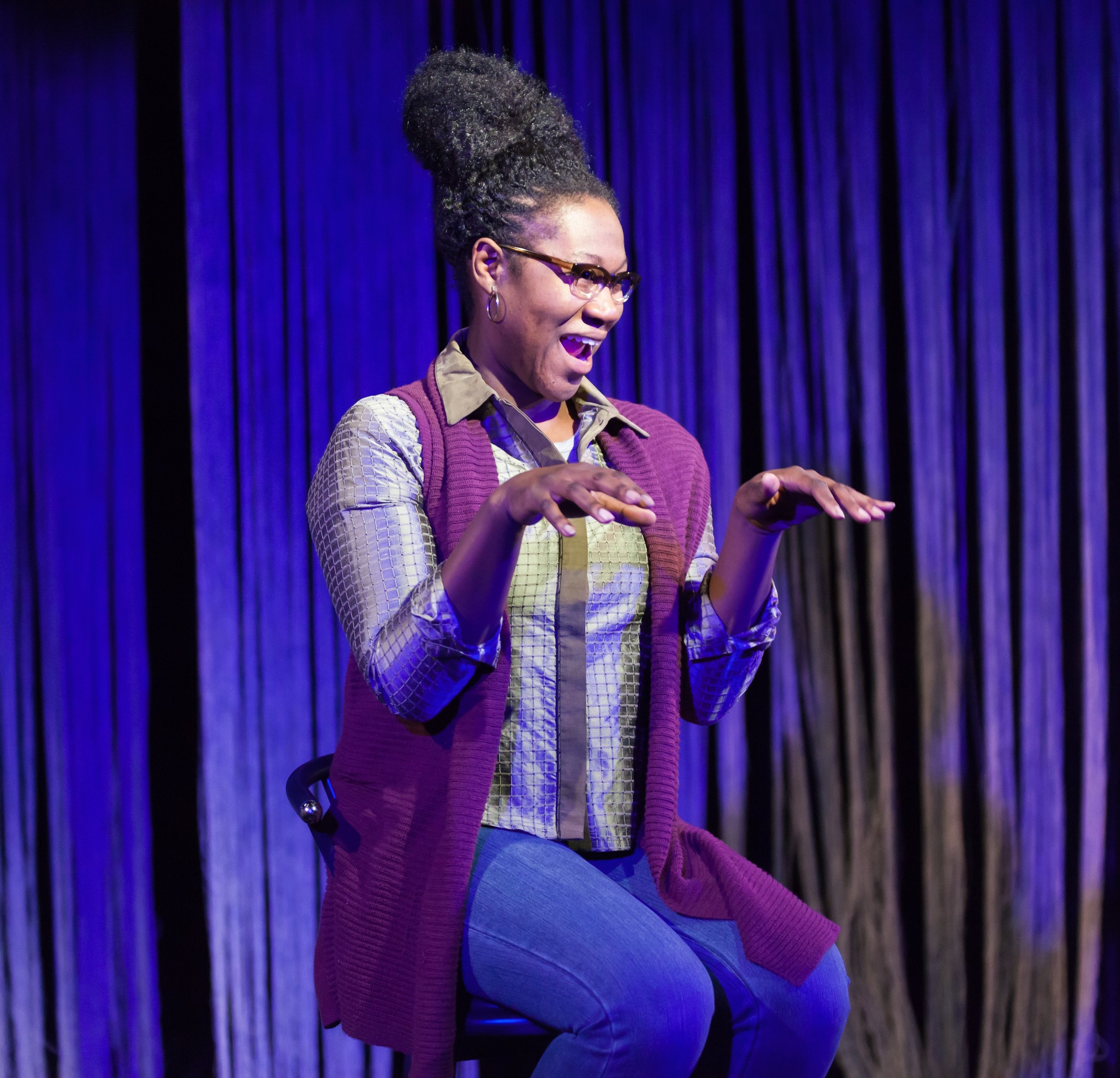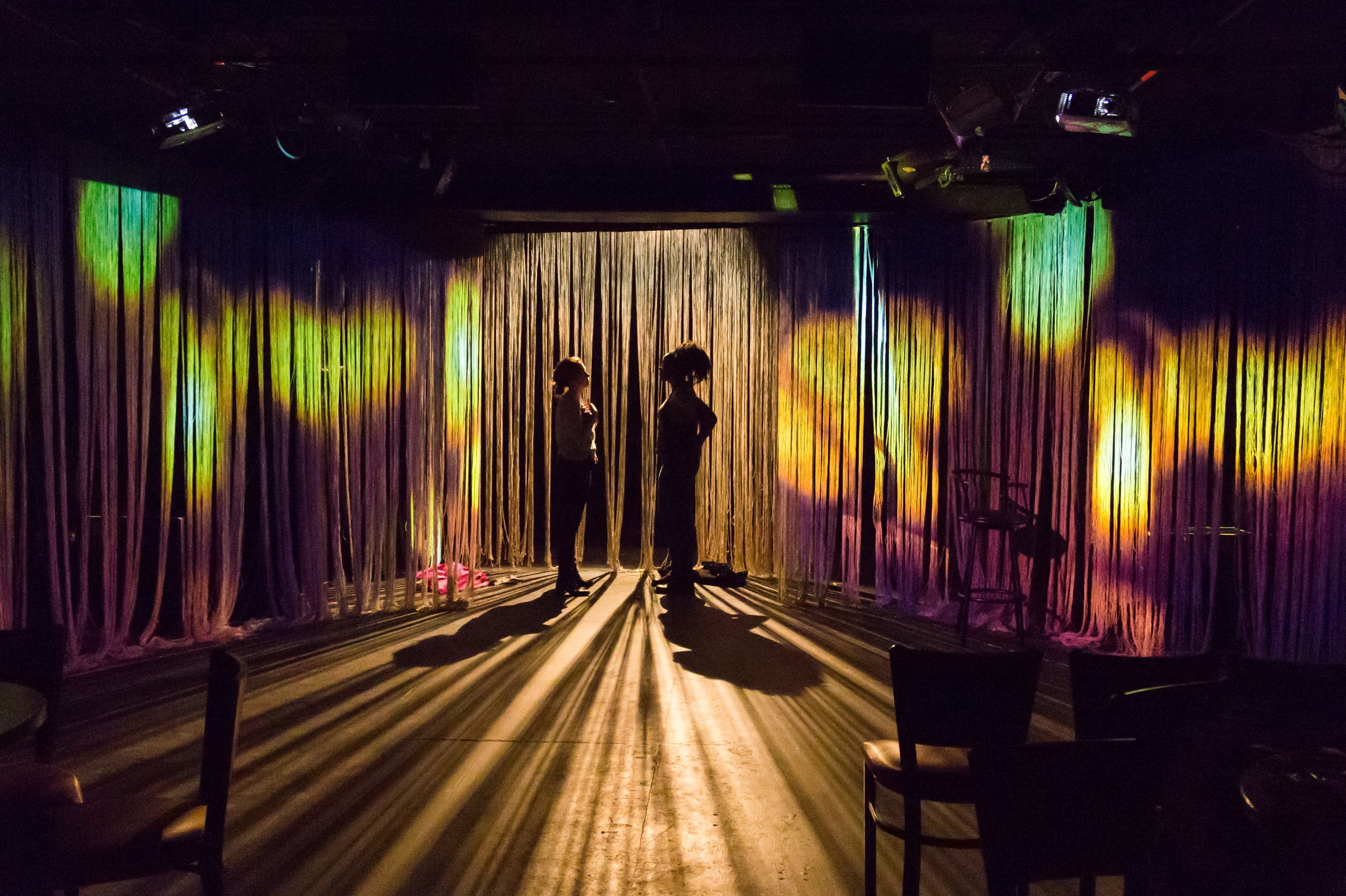Review of Shiny Objects at Yale Cabaret Shiny Objects, the latest show at the Yale Cabaret, asks us to listen to the stories women tell about themselves. Against our culture’s tendency to objectify women, this devised piece from third-year Yale School of Drama actresses Maura Hooper and Zenzi Wiliams, directed by fellow third-year actor Christopher Geary, attempts to subjectify women. That means getting at how the world looks from the viewpoint of 8 women, the interviewees whose words form the basis of the play.
In staging, verbatim, words taken from interviews, Hooper and Williams inhabit the women’s voices and bodies, making us witness different attitudes and styles of comportment. Mere mimicry is not enough as, in each case, some point of “character” must be manifested to give us a sense of who we’re dealing with. Costume changes help us keep track of who’s who, as we’re presented with bits of each interview and have to keep in play the different lives presented, as Hooper and Williams come and go individually from behind a cascade of metallic-looking yarn that forms a loose curtain.
Assessing the nature of the different characters is not simply a matter of their lucidity or ability to express themselves. People aren’t, by and large, playwrights, so their language, while used for effect, doesn’t have to consider drama or comedy as something external—as “theater.” And that makes the theatricality of Hooper and Williams risky. Trying to find a way into lives with only a person’s own words and mannerisms to steer them requires the wherewithal to make us receptive to this series of confidences. It helps that Hooper and Williams both have great stage presence and know how to charm.
The show, as a play, places the audience in the role of confidantes, hearing how several women shape their lives, how they put themselves across, and how they account for what gives them pride or makes them ashamed. In thinking back on the show, I found that four distinct women impressed themselves on me, which means that another four kind of got lost in the sauce. But isn’t that how life is: what makes you remember or find memorable the people you can easily recall?
In the case of two of the women Maura Hooper plays, the contrast is enough to make them distinctive: one, in a deep red sweater, had been a nun, and she speaks through a clenched face, becoming animated as she tells of an encounter with a psychiatrist who gave her a mantra to live by; the other is a dominatrix, in a furry jacket, who speaks feelingly of the skill required to subjugate submissive men without causing irreparable harm. The contrast might be a bit “easy,” but Hooper keeps us engaged with these women, not as “types” but as two very different people who find aspects of their own lives surprising to themselves.
The two characters played by Zenzi Williams that stayed with me are an islander very emphatic about having to sing your part in the large musical composition of life. It was a simple metaphor that the speaker got a lot of mileage out of, particularly her sense that if one lets oneself be “silenced” (in all senses), then one has missed one’s chance to contribute something individual. Williams’ other standout character was a woman who, while in what some would call a successful marriage, had the strength of purpose to start her life over with someone else, for the sake of personal fulfillment. She gave the play a kind of “follow your bliss” mantra, evoked by having to shoot parental commands and other social constraints off your shoulders.
With minimal use of props—a chair—strategic changes in articles of clothing—scarves, headwraps, glasses, jackets, sweaters and wraps—and great use of lighting and subtle projections, Williams and Hooper and Geary kept the focus on personality as, indeed, the most personal aspect in our lives, the key to character and the element that makes us empathize or zone out. Faced with what could seem a talk-show sense of divulgence, Hooper and Williams and Geary—and dramaturg Rachel Carpman—found a way, for the most part, to give us the sense that, for every subjectivity, there is a “shiny object”: its own sense of its self, its purpose, its raison d’être.
The final “curtain” pairing of the two actresses shorn of their characters provided a striking moment to reflect on how performative personality is and how nice it might be to doff it and walk off into the wings.
Shiny Objects Proposed by and featuring Maura Hooper and Zenzi Williams Directed by Christopher Geary
Set Designer: Claire DeLiso; Costume Designer: Haydee Antunano; Lighting Designer: Andrew F. Griffin; Sound Designer: Kate Marvin; Projection Designer: Ni Wen; Production Manager: Lee O’Reilly; Techincal Director: Kelly Fayton, Kat Wepler; Dramaturg: Rachel Anna Carpman; Stage Manager: Emily DeNardo; Producer: Sarah Williams; Photographs by Joey Moro
Yale Cabaret February 19-21, 2015





